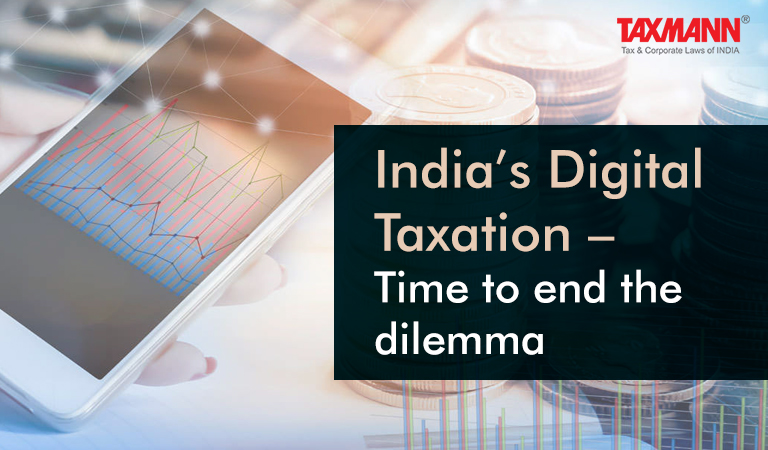India’s Digital Taxation – Time to end the dilemma
- Blog|News|Income Tax|
- < 1 minute
- By Taxmann
- |
- Last Updated on 28 January, 2022

Ankita Chowdhry – [2022] 134 taxmann.com 277 (Article)
Due to the several challenges posed by the COVID-19 pandemic, the world has witnessed adoption of technology at an exponential rate and a tectonic shift in business models.
By way of OECD project, around 137 countries have agreed to collaborate to form a global tax landscape and address issues arising out of digitization. While several countries have introduced unilateral measures such as introduction of digital taxes, OECD’s focus is to eliminate such unilateral measures and come up with a consensus based solution. Tech giants like Facebook, Google, Amazon, etc. carrying on businesses around the world with minimal / zero presence in market jurisdictions would now have to pay their fair share of tax in such countries.
In October 2021, OECD/ G20 Inclusive Framework on BEPS (IF) agreed on a two-pillar solution to address the tax challenges arising from the digitalization and provided timelines for implementation.
Click Here To Read The Full Article
Disclaimer: The content/information published on the website is only for general information of the user and shall not be construed as legal advice. While the Taxmann has exercised reasonable efforts to ensure the veracity of information/content published, Taxmann shall be under no liability in any manner whatsoever for incorrect information, if any.

Taxmann Publications has a dedicated in-house Research & Editorial Team. This team consists of a team of Chartered Accountants, Company Secretaries, and Lawyers. This team works under the guidance and supervision of editor-in-chief Mr Rakesh Bhargava.
The Research and Editorial Team is responsible for developing reliable and accurate content for the readers. The team follows the six-sigma approach to achieve the benchmark of zero error in its publications and research platforms. The team ensures that the following publication guidelines are thoroughly followed while developing the content:
- The statutory material is obtained only from the authorized and reliable sources
- All the latest developments in the judicial and legislative fields are covered
- Prepare the analytical write-ups on current, controversial, and important issues to help the readers to understand the concept and its implications
- Every content published by Taxmann is complete, accurate and lucid
- All evidence-based statements are supported with proper reference to Section, Circular No., Notification No. or citations
- The golden rules of grammar, style and consistency are thoroughly followed
- Font and size that’s easy to read and remain consistent across all imprint and digital publications are applied



 CA | CS | CMA
CA | CS | CMA
